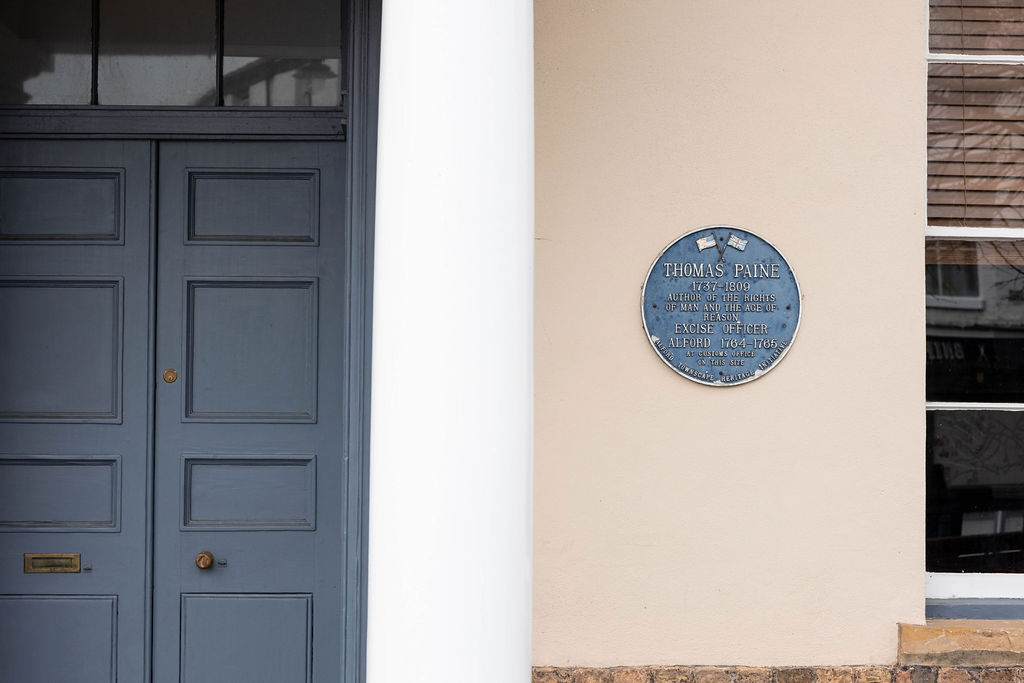OUR HISTORY
The Windmill Hotel, originally known as The Windmill Inn, is an 18th century Coaching House situated in the middle of the historic market town of Alford. In the past the Windmill hotel was the local Posting House and Excise Office. Today, the Windmill Hotel is listed on the National Heritage List for England, a unique register of our country’s most significant historic buildings and sites.
In the 18th Century, Alford was a centre for smuggling. This consisted of the illegal export of wool from the Lincolnshire coast and the import of contraband, particularly alcohol and tea. The Windmill Inn was an important trading and commercial venue in town, with its central position ideal for conducting business.
The site is particularly famous for its connection with Thomas Paine. Thomas Paine was a radical socialist thinker and is recognised to be one of the forefathers of the United States. He is the man considered to have devised the name “United States of America” and during his life was good friends with Benjamin Franklin and George Washington. Paine began his career as an Exciseman in Grantham, but Alford was his first responsible position. He was stationed there as an Excise Officer from 1764 to 1765. His office was in the Windmill Hotel and is now The Thomas Paine Suite overlooking the main Market Place. Thomas Paine is most famous for his published works ‘The Rights of Man’ in 1791 and ‘The Age of Reason’ in 1793. A blue plaque is displayed on the Windmill Hotel building and is an important tourist attraction for the area.
The Windmill Hotel is also known for being the venue of the first Lincolnshire ‘Stuff Ball’ held in 1785. The annual ball was established to encourage and promote the local manufactory and industry of the fabric known as ‘Lincolnshire Stuff.’ ‘Stuff’ referred to any woven fabric and the rules for these balls stipulated that only Lincolnshire Stuff made from Lincolnshire wool and both manufactured and dyed in the county could be worn, the only exception being for gentlemen to be allowed silk stockings. Each year the titled patroness of the ball chose the colour theme for the year ensuring that all the guests had to order new clothes rather than wear
those from the previous year. Due to the success and popularity of the event it was moved to The Assembly Rooms in Lincoln’s Bailgate from 1789 and the tradition eventually stopped running in 1900 as many families had relatives serving in the Boer War.

